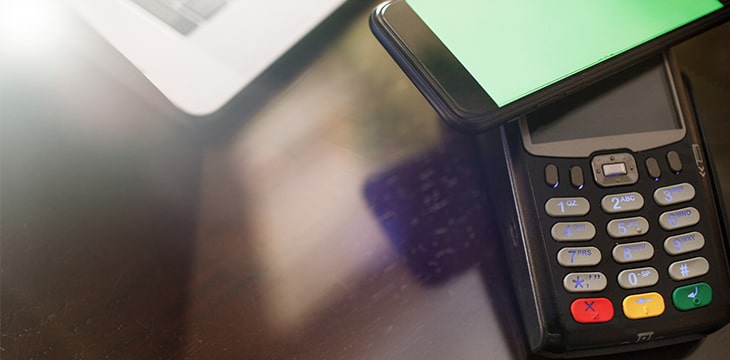Imagine walking into a high street grocery store, picking up your items, scanning them with a device you picked up on the way in, and just walking out of the store. While it seems a little far-fetched right now, such a reality might be closer than you think.
The world is moving fast towards cashless payments. Yet, walk into most retail stores today, and you’ll still see most people using notes, coins, and PIN-based bank or credit cards. Until recently, many retailers even reported experiencing pushback from customers when they tried to move to a cashless way of doing things. As a result, many ended up returning to using cash and cards with traditional checkouts.
The pandemic seems to have changed things. It appears that having to do most of their shopping online for a part of last year has made more retail shoppers willing to try cashless payment methods. This trend is exemplified by traditional retail stores like U.K. grocery giant Tesco opening cashless branches in London. These stores offer a range of cashless payment methods like Apple Pay and contactless cards. They only offer self-service checkouts and are the first of their kind.
Could we really be moving into a world where retail stores take on many of the characteristics of online shopping, and could these conveniences combined with the ability to actually see, touch, and interact with the products help retail win back some of the market share they’ve lost to online stores? It seems like some of them are at least going to give it a shot.
How Bitcoin enterprise blockchain can facilitate cashless payments
In this world of cashless payments and even stores without staff, several potential problems arise. How would stores manage the risk associated with theft and fraud? How would stores without people in them know when to order new stock? How would retail stores function efficiently without people to monitor them?
Bitcoin enterprise blockchain can help solve some of these problems. It’s already doing so, with owners of everything from digital stores to construction companies benefiting from its unmatched capabilities.
Since Bitcoin is a peer-to-peer electronic cash system, it could allow customers to pay for items by doing nothing more than scanning their items and then scanning a QR code linked to their digital wallets. Since, unlike today’s card payments, Bitcoin allows for fast settlement, fraud could become much less prevalent and the costs associated with chargebacks, a major pain point for merchants which often cost two or three times the value of the transaction, could be largely eliminated.
Customers wouldn’t even have to use bitcoins, although that’s much easier now thanks to companies like Anypay. Instead, they could pay in the fiat currencies they’re used to.
Not just about cashless payments
Additionally, Bitcoin enterprise blockchain allows for real-time collection and storage of data. This would allow for to-the-second monitoring of stock supplies and automated alerts when they reach certain thresholds. Imagine a store that automatically alerts its nearest warehouse when it needs to reorder specific items. That’s already possible today and will become easier and more efficient with blockchain solutions like BSV.
The data management capabilities this blockchain allows enable much more than monitoring stock. Discovering inefficiencies, previously unrecognized patterns in customer behaviour, and many other insights becomes possible when all the data is securely stored on the BSV blockchain.
As for customers, they could receive rewards and be incentivized to behave in certain ways. A small payment back to a customer’s wallet for purchasing specific items, rewards points for referring friends to the store, or coupons linked to items they’re interested in arriving in their wallets with their consent all become relatively easy to achieve.
BSV blockchain opens new possibilities
It’s true that cashless stores are picking up steam now that more people are ready to embrace them. But the cashless payments are just the beginning. Think stores with cashless payments, real-time data collection/storage, and rewards delivered on the spot for desirable consumer behaviour, and you’re getting closer to what Bitcoin enables.
What Bitcoin really is and the type of world it will make possible is still understood by very few people. It’s much more than a digital coin. It’s the fusion of data and money into an all-encompassing system that makes cashless payments and much more possible. It has the potential to revitalize retail and give it back many of the competitive edges it lost to online rivals in the past couple of decades. Those who embrace it first will benefit most.
Watch: CoinGeek Zurich panel, Consumer Payments, Incentives & Rewards with Bitcoin
frameborder=”0″ allow=”accelerometer; autoplay; clipboard-write; encrypted-media; gyroscope; picture-in-picture” allowfullscreen>
Source: Read Full Article
